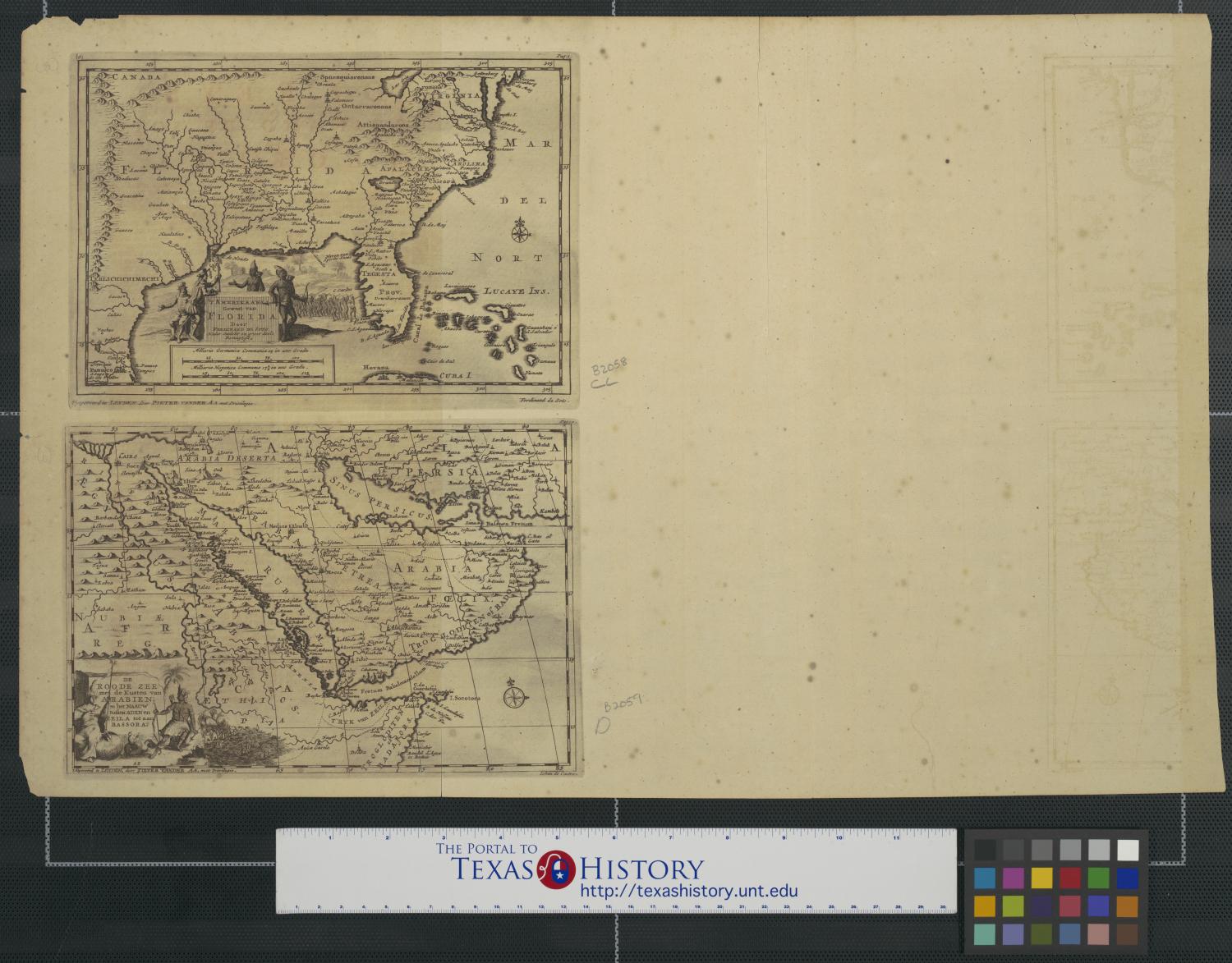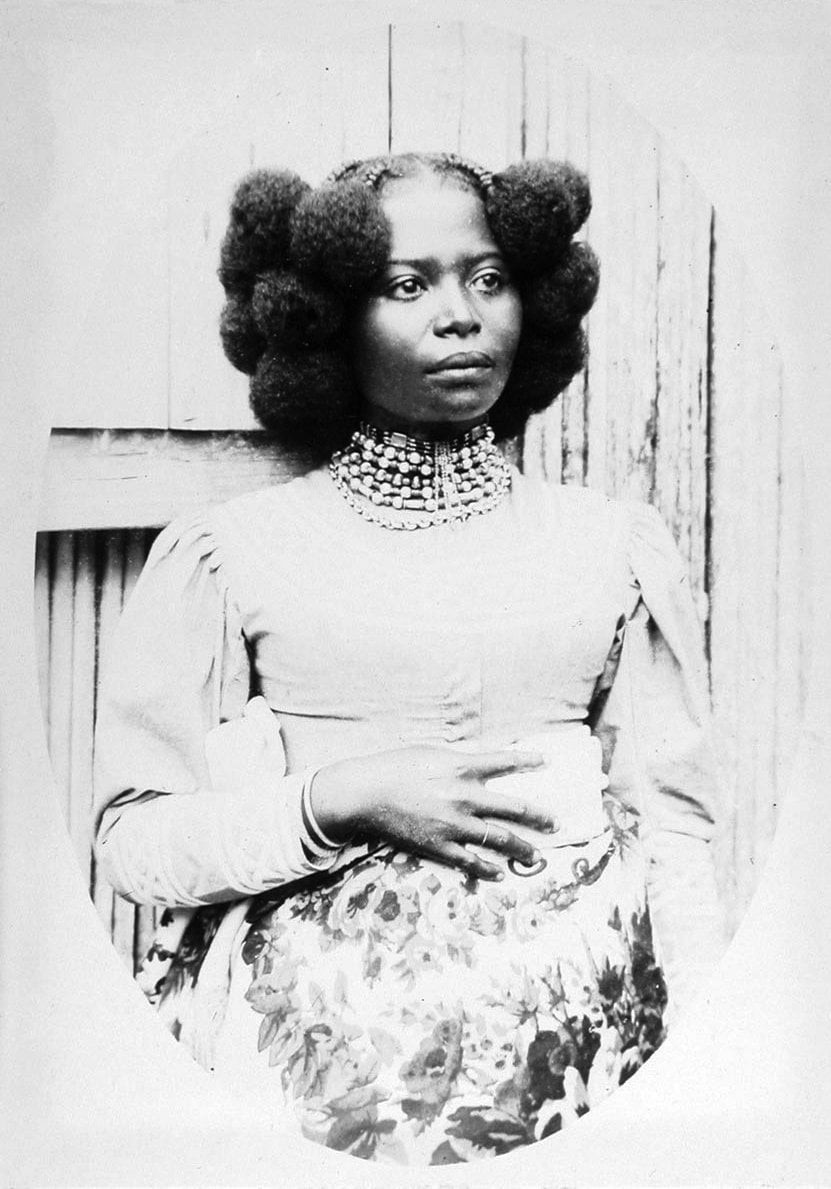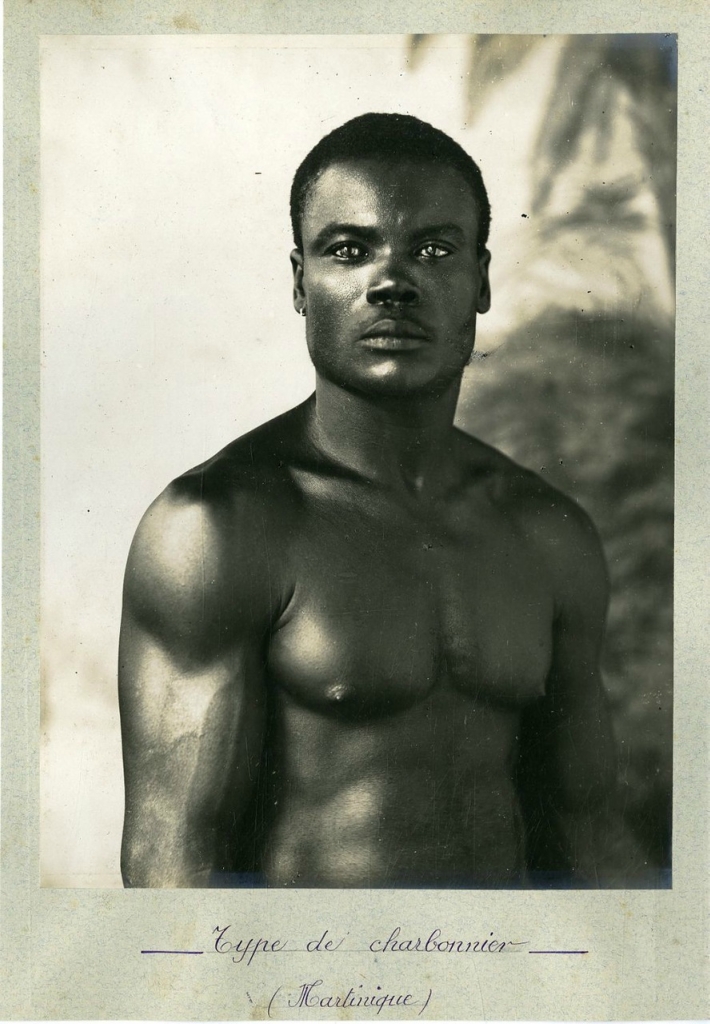You are using an out of date browser. It may not display this or other websites correctly.
You should upgrade or use an alternative browser.
You should upgrade or use an alternative browser.
African American History aka Black History & History of Afrikans World Wide
- Thread starter Lexx Diamond
- Start date
Australian History..
This is the man known as Koolbiri or 'Mailman Jimmy' who for many years carried the mail on foot between Fowlers Bay and Eucla in the early days of settlement on the South Australian West Coast.
Following Mailman Jimmy's death the Saturday Journal reported on 25 August 1923;
"He was the Royal Mail between Fowlers Bay and Eucla for many years. He ran with the mail bags every fortnight from the Bay to Eucla, a distance of 280 miles, and returned during the following fortnight.
He could do the journey in faster time than a man on horseback, owing, I presume, to his superior bushcraft, and his knowledge of reliable water supplies...."

This is the man known as Koolbiri or 'Mailman Jimmy' who for many years carried the mail on foot between Fowlers Bay and Eucla in the early days of settlement on the South Australian West Coast.
Following Mailman Jimmy's death the Saturday Journal reported on 25 August 1923;
"He was the Royal Mail between Fowlers Bay and Eucla for many years. He ran with the mail bags every fortnight from the Bay to Eucla, a distance of 280 miles, and returned during the following fortnight.
He could do the journey in faster time than a man on horseback, owing, I presume, to his superior bushcraft, and his knowledge of reliable water supplies...."

The mysterious WASHINGTON PHILLIPS (1880-1954) was a Gospel singer from Texas that accompanied himself in a very unique way, on a fretless zither, some say homemade, variously called a Dulceola, Celestephone or Phonoharp. He recorded eighteen songs from 1927 to 1929 in Dallas for Columbia Records.
His songs have been covered over the years by Ry Cooder, Gillian Welch, Andy Cohen (who has been known to take an ancient Dulceola on the road!), Phish, Ralph Stanley, the Be Good Tanyas and others, bringing him a fame he never had in his lifetime. His songs include "Denomination Blues," "Key to the Kingdom," and "Paul and Silas in Jail." The zither gave his music a very ethereal and angelic sound, pure magic!
WORLD'S #1 SOURCE of new Nationals: www.catfishkeith.com/national-guitars/
This one of perhaps only two photos of Washington Phillips, from Columbia Records.

His songs have been covered over the years by Ry Cooder, Gillian Welch, Andy Cohen (who has been known to take an ancient Dulceola on the road!), Phish, Ralph Stanley, the Be Good Tanyas and others, bringing him a fame he never had in his lifetime. His songs include "Denomination Blues," "Key to the Kingdom," and "Paul and Silas in Jail." The zither gave his music a very ethereal and angelic sound, pure magic!
WORLD'S #1 SOURCE of new Nationals: www.catfishkeith.com/national-guitars/
This one of perhaps only two photos of Washington Phillips, from Columbia Records.

'T Amerikaan Region of Florida By Ferdinand De Soto More Discovered and Much Powered : With Privilege.
Original title; 'T Amerikaans Gewest van Florida Door Ferdinand De Soto Nader Ontdekt en groot deels Bemagtigd : met Privilegie.

 texashistory.unt.edu
texashistory.unt.edu
Original title; 'T Amerikaans Gewest van Florida Door Ferdinand De Soto Nader Ontdekt en groot deels Bemagtigd : met Privilegie.
'T Amerikaans Gewest van Florida Door Ferdinand De Soto Nader Ontdekt en groot deels Bemagtigd : met Privilegie.
Map shows southeastern portion of the North American continent as "Florida," the "Lucaye Ins." off the coast on "Florida" map; on second map, Persia, the Red Sea, the Arabian peninsula, Egypt and Ethiopia. Relief shown pictorially. Scale not given.
Description Bookmark this section
Map shows southeastern portion of the North American continent as "Florida," the "Lucaye Ins." off the coast on "Florida" map; on second map, Persia, the Red Sea, the Arabian peninsula, Egypt and Ethiopia. Relief shown pictorially. Scale not given.Physical Description Bookmark this section
2 maps on 1 sheet ; 15 x 23 cm. or smaller, on sheet 35 x 54 cm.Creation Information Bookmark this section
Aa, Pieter van der, 1659-1733 [1695..1715].Context Bookmark this section
This map is part of the collection entitled: Map Collections from the University of Texas at Arlington and was provided by the University of Texas at Arlington Library to The Portal to Texas History, a digital repository hosted by the UNT Libraries.While the exact origins of hip-hop are debated, its modern popularity & political influence is traced to American black nationalist poetry of the late 60s -- and the first regarded rap group/collective being Harlem’s The Last Poets - Hey Now, 1971
Code:
https://www.reddit.com/r/OldSchoolCool/comments/12t5wqs/while_the_exact_origins_of_hiphop_are_debated_its/

Joseph “Uncle Joe” Clovese was the last known surviving African soldier of the Union Army in the American Civil War, and lived in Pontiac at the time of his death in 1951. Clovese, who lived to be 107 years old, was born into slavery on a plantation in St. Bernard Parish, Louisiana, and escaped slavery in his teens to join the Union Army during the Siege of Vicksburg. He stayed with the Northern Army, first as a drummer, later as an infantryman. He was a private in Co. “C”, 63rd Colored Infantry Regiment.
Following the war he worked on Mississippi river steamboats, and he later worked on the crew stringing the first telegraph wires between New Orleans and Biloxi, Mississippi. At the age of 104, Clovese moved from Louisiana to Pontiac, Michigan to be near family. Once the community learned about “Uncle Joe,” the citizens of Pontiac embraced him. Large gatherings were organized for his 105th, 106th and 107th birthdays on January 30th.
For his funeral, more than 300 people were packed into Newman A.M.E. Church in Pontiac (their former location, in downtown) for the service. Hundreds more gathered at the gravesite in Pontiac’s Perry Mount Park Cemetery. Veterans from the Oakland County Council of Veterans served as pall bearers. A firing party from Selfridge Air Force Base fired the final salute and taps was sounded over the cemetery. Pontiac even named a road in his honor, that ran through the Lakeside Homes complex.
Woman from the island of Nosy Be, Madagascar (1868)


Eritrean Warrior near Teseney in 1936


. (1859–1926)
An African American inventor, who patented the friction heater. Baker was born into slavery on August 3, 1859, in Savannah, Missouri. His mother, Betsy Mackay, died when he was three months old, leaving him to be brought up by the wife of his owner, Sallie Mackay, and his father, Abraham Baker. He was the youngest of five children, Susie, Peter, Annie, and Ellen, all of whom were freed after the Civil War. Baker later received an education at Franklin College. His father was employed as an express agent, and once Baker turned fifteen, he became his assistant. Baker worked with wagons and linchpins, which sparked an interest in mechanical sciences. friction heater friction heater
Baker worked over the span of decades on his product, attempting several different forms of friction, including rubbing two bricks together mechanically, as well as using various types of metals. After twenty-three years, the invention was perfected in the form of two metal cylinders, one inside of the other, with a spinning core in the center made of wood, that produced the friction. Baker started a business with several other men to manufacture the heater. The Friction Heat & Boiler Company was established in 1904, in St. Joseph, with Baker on the board of directors. The company worked up to 136,000 dollars in capital, equal to nearly 6 million dollars in 2022.
During his patent application, Baker stated that the friction heat could be produced with any mode of power like wind, water and gasoline.
His device, according to him, was set to be the cheapest source of heat production at the time which made him win accolades such as ‘King of Clean Energy and ‘St. Joseph Negro Inventor.’ friction heater
“Mr. Baker claims that the particular mode of power used in creating the friction is not essential. It may be wind, water, gasoline, or any other source of energy.
“The most difficult part of the inventor’s assertions to prove is that his system will light or heat a house at about half the cost of methods now in use,” The Draftsman 1908.
After years of trials, his device was near-perfect at the time it was invented. Baker’s device was made up of two metal cylinders, with one inserted into the other. A wooden spinning core was put in the center to produce the friction.
Any notable newsreels hailed his invention. “On March 27, 1904, the New York Times’ edition identified Baker’s invention as a “Clever Negro Invention”. Other newspapers such as Daily Gazette and News-Press also published his story in 1904 indicating that his invention would “revolutionize the then heating systems.”
Baker then created a factory called The Friction Heat and Boiler Company in 1904 in St. Joseph with him as the head of board of directors.
His company employed 50 skilled and unskilled labour to produce more radiators and had about $136,000 in capital stocks.
At the time, Baker’s capital stock was a lot of money which made him an affluent and honorable man in his hometown. His loyalty to his employees made his business thrive albeit racial prejudice which sometimes posed as a threat to his finances, his business flourished.
Baker was the youngest of five children and got married in 1880 at age 21 to Carrie Carriger and they had a daughter, Lulu Belle Baker. On May 5, 1926, he died in his daughter’s home in St. Joseph. Baker died of pneumonia on May 5, 1926, in St. Joseph, Missouri.
Photograph showing inventor Charles S.L Baker and his assistant demonstrating heating/radiator system.

An African American inventor, who patented the friction heater. Baker was born into slavery on August 3, 1859, in Savannah, Missouri. His mother, Betsy Mackay, died when he was three months old, leaving him to be brought up by the wife of his owner, Sallie Mackay, and his father, Abraham Baker. He was the youngest of five children, Susie, Peter, Annie, and Ellen, all of whom were freed after the Civil War. Baker later received an education at Franklin College. His father was employed as an express agent, and once Baker turned fifteen, he became his assistant. Baker worked with wagons and linchpins, which sparked an interest in mechanical sciences. friction heater friction heater
Baker worked over the span of decades on his product, attempting several different forms of friction, including rubbing two bricks together mechanically, as well as using various types of metals. After twenty-three years, the invention was perfected in the form of two metal cylinders, one inside of the other, with a spinning core in the center made of wood, that produced the friction. Baker started a business with several other men to manufacture the heater. The Friction Heat & Boiler Company was established in 1904, in St. Joseph, with Baker on the board of directors. The company worked up to 136,000 dollars in capital, equal to nearly 6 million dollars in 2022.
During his patent application, Baker stated that the friction heat could be produced with any mode of power like wind, water and gasoline.
His device, according to him, was set to be the cheapest source of heat production at the time which made him win accolades such as ‘King of Clean Energy and ‘St. Joseph Negro Inventor.’ friction heater
“Mr. Baker claims that the particular mode of power used in creating the friction is not essential. It may be wind, water, gasoline, or any other source of energy.
“The most difficult part of the inventor’s assertions to prove is that his system will light or heat a house at about half the cost of methods now in use,” The Draftsman 1908.
After years of trials, his device was near-perfect at the time it was invented. Baker’s device was made up of two metal cylinders, with one inserted into the other. A wooden spinning core was put in the center to produce the friction.
Any notable newsreels hailed his invention. “On March 27, 1904, the New York Times’ edition identified Baker’s invention as a “Clever Negro Invention”. Other newspapers such as Daily Gazette and News-Press also published his story in 1904 indicating that his invention would “revolutionize the then heating systems.”
Baker then created a factory called The Friction Heat and Boiler Company in 1904 in St. Joseph with him as the head of board of directors.
His company employed 50 skilled and unskilled labour to produce more radiators and had about $136,000 in capital stocks.
At the time, Baker’s capital stock was a lot of money which made him an affluent and honorable man in his hometown. His loyalty to his employees made his business thrive albeit racial prejudice which sometimes posed as a threat to his finances, his business flourished.
Baker was the youngest of five children and got married in 1880 at age 21 to Carrie Carriger and they had a daughter, Lulu Belle Baker. On May 5, 1926, he died in his daughter’s home in St. Joseph. Baker died of pneumonia on May 5, 1926, in St. Joseph, Missouri.
Photograph showing inventor Charles S.L Baker and his assistant demonstrating heating/radiator system.

C.L.R. James (born Jan. 4, 1901, Tunapuna, Trinidad—died May 31, 1989, London, Eng.)
Posted on December 1, 2009by contributed by: Melissa Turner
C.L.R. James, Cricketer magazine, November 1974
Fair use image
Cyril Lionel Robert James was born in the British colony of Trinidad on January 4, 1901. James was a bright youth who absorbed literature, history, music, sports, and art-the foundational texts of Western civilization. He attended Queen’s Royal College in Port of Spain, but chafed at the rigid disciplinarianism of the educational British system. Yet he was deeply interested in and influenced by the game of cricket introduced by the British and became a local cricket reporter before turning to fiction. James wrote several early works of fiction in Trinidad before sailing for England in 1932 at the age of 31. While in England, James spent a great deal of time focusing his writing on issues relevant to the expatriate West Indian community. He published The Case for West Indian Self-Government in 1933.
James was increasingly exposed to social issues and turned to the writings of many Communist thinkers in this period. He became a major Trotskyist thinker as well as an ardent critic of fascism. He produced a play, Toussaint L’Ouverture, with Paul Robeson in the lead role which reflected his political leanings. James was becoming more interested in revolution and social liberation as well as questions of race. He published his landmark work, The Black Jacobins, in 1938, offering a Trotskyist analysis of the 1791 slave revolution in Haiti. James and his fellow Trotskyites remained opposed to Stalinism and offered virulent critiques of the system throughout the 1930s.
C.L.R. James arrived in the United States in 1938 and remained for the next twenty years. While in the U.S., he began to have doubts about the Trotskyist analysis of the Soviet Union and argued for a liberation of Marxism through a bottom-up emphasis. He also studied Whitman and Melville in this period. James returned to England in 1953 and five years later went back to his native Trinidad where he became involved in politics and the decolonization movement. James published Beyond a Boundary in 1963, a memoir and social commentary, that explored the place of cricket in West Indian and British society and its role in empire, family, masculinity, race, class, national culture, colonization, and decolonization. The work is widely viewed by critics as one of the best sports books ever written.
After 1960 James traveled widely throughout Africa and the Caribbean and was interested in the role of culture across boundaries. As a West Indian deeply-infused with Western culture, he sought to carve out a space of independence while still maintaining his love for what he saw as a series of cross-national ideals. He taught at the University of the District of Columbia starting in 1968 and wrote a series of works on culture, politics, radicalism, and revolution. James passed away on May 19, 1989 in London, England, on the brink of the collapse of the Soviet Union. He was survived by his widow Selma.
Subjects:
Global African History, PeopleTerms:
Sports-Cricket, 20th Century (1900-1999), Gender - Men, Political Activists - Radicals and Marxists, United States-Washington D.C, North America-Trinidad and Tobago, North America-Haiti, Occupation-Writer, Europe - Great Britain - Englandce
ancestorsC.L.R. James (born Jan. 4, 1901, Tunapuna, Trinidad—died May 31, 1989, London, Eng.)
Posted on December 1, 2009by contributed by: Melissa Turner

C.L.R. James, Cricketer magazine, November 1974
Fair use image
Cyril Lionel Robert James was born in the British colony of Trinidad on January 4, 1901. James was a bright youth who absorbed literature, history, music, sports, and art-the foundational texts of Western civilization. He attended Queen’s Royal College in Port of Spain, but chafed at the rigid disciplinarianism of the educational British system. Yet he was deeply interested in and influenced by the game of cricket introduced by the British and became a local cricket reporter before turning to fiction. James wrote several early works of fiction in Trinidad before sailing for England in 1932 at the age of 31. While in England, James spent a great deal of time focusing his writing on issues relevant to the expatriate West Indian community. He published The Case for West Indian Self-Government in 1933.
James was increasingly exposed to social issues and turned to the writings of many Communist thinkers in this period. He became a major Trotskyist thinker as well as an ardent critic of fascism. He produced a play, Toussaint L’Ouverture, with Paul Robeson in the lead role which reflected his political leanings. James was becoming more interested in revolution and social liberation as well as questions of race. He published his landmark work, The Black Jacobins, in 1938, offering a Trotskyist analysis of the 1791 slave revolution in Haiti. James and his fellow Trotskyites remained opposed to Stalinism and offered virulent critiques of the system throughout the 1930s.
C.L.R. James arrived in the United States in 1938 and remained for the next twenty years. While in the U.S., he began to have doubts about the Trotskyist analysis of the Soviet Union and argued for a liberation of Marxism through a bottom-up emphasis. He also studied Whitman and Melville in this period. James returned to England in 1953 and five years later went back to his native Trinidad where he became involved in politics and the decolonization movement. James published Beyond a Boundary in 1963, a memoir and social commentary, that explored the place of cricket in West Indian and British society and its role in empire, family, masculinity, race, class, national culture, colonization, and decolonization. The work is widely viewed by critics as one of the best sports books ever written.
After 1960 James traveled widely throughout Africa and the Caribbean and was interested in the role of culture across boundaries. As a West Indian deeply-infused with Western culture, he sought to carve out a space of independence while still maintaining his love for what he saw as a series of cross-national ideals. He taught at the University of the District of Columbia starting in 1968 and wrote a series of works on culture, politics, radicalism, and revolution. James passed away on May 19, 1989 in London, England, on the brink of the collapse of the Soviet Union. He was survived by his widow Selma.
Subjects:
Global African History, People
Terms:
Sports-Cricket, 20th Century (1900-1999), Gender - Men, Political Activists - Radicals and Marxists, United States-Washington D.C, North America-Trinidad and Tobago, North America-Haiti, Occupation-Writer, Europe - Great Britain - England







Seen in Tchad, 1968-69 by Louhaur Bernard

The Stork Derby and the Carter Family..
Their son “George” served at Ipperwash in the Second World War and after the war studied at Osgoode Hall and became a lawyer. He has an office on Bay Street and would go on to become Ontario’s first Black provincial judge.









